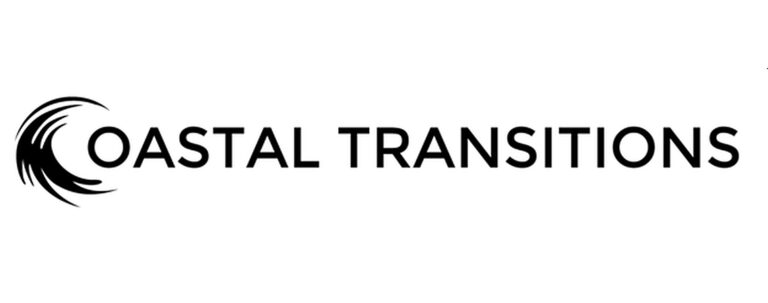Coastal Transitions is sponsored by the IGU Commission on the Dynamics of Economic Spaces and the
IGU Commission on Coastal Systems. Coastal Transitions is jointly organized by Liverpool John Moores University, Southern Connecticut State University and MIC University of Limerick.
Description/Rationale:
The Blue Economy concept and agenda has been endorsed by a wide range of actors, from development institutions to conservation organizations and across a wide range of public and private actors (business and conservation alike). Despite this, there has not been a concerted effort at interrogating the multi-scalar complexities of Blue Economy development initiatives in academic discourse. This conference aims to do just that, and in doing so provide a basis for the analysis of proposed Blue Economy initiatives. It is the goal of this conference to act as a catalyst to bridge and mobilize emerging knowledge(s) on coastal/marine governance, technology development, and policy practices for transitioning to a Blue Economy. A focus will be on assuring that there is direct dialogue and engagement between the scientific research community, government officials, NGO representatives and the business community through transdisciplinary interactive problem-based workshops. Government officials and members of the local and regional NGO and business communities will be invited directly by the conference organizers. The proposed conference will build upon the successful Coastal Transitions Conference in New Haven, Connecticut in March 2017, which led to the publication of an edited volume Towards Coastal Resilience and Sustainability in the Coastal Zone (Heidkamp & Morrissey, 2018) and also served as the catalyst for the productive Regional Studies Association Research Network on Sustainability Transitions in the Coastal Zone (RSA, 2019).
Sub Themes:
We welcome theoretical, methodological as well as empirical or case study contributions especially related (but not limited to) the following sub-themes:
- Conceptualizing of the Blue Economy in economic geography
- The interconnection between climate change impacts and the Blue Economy
- Smart shipping, ports, transportation, and global connectivity
- Employment, job creation, and poverty eradication
- The role of ocean/maritime clusters in fostering a sustainable Blue Economy
- Innovation in the Blue Economy
- Cities, tourism, resilient coasts, and infrastructure
- Sustainable energy, mineral resources and innovative industries
- Managing and sustaining marine life, conservation and sustainable economic activities
- Securing food supplies and promoting good health and sustainable fisheries
- Climate action, agriculture and fisheries, waste management, and pollution-free oceans
- Maritime security, safety and regulatory enforcement
- Participatory governance and community driven Blue Economies
- Synergies between the scientific research community and coastal stakeholders
- Blue Economy and climate adaptation, resilience, disruption
- Just transitions and the Blue Economy
- Blue growth industries
- Marine spatial planning and the Blue Economy
- Critical engagement with Blue Economy
- Towards a Blue New Deal
Preliminary Conference Program:
Wednesday 4th Afternoon: Welcome, Registration, Keynote and Reception
Thursday 5th Morning: Fieldtrip, Afternoon: Papers/Seminars, Evening: Social Event
Friday 6th Papers/Seminars/Workshops, Evening: Social Event
Saturday 7th Papers/Seminars/Workshops, Evening: Conference Dinner
Sunday 8th Optional Field Trip
Conference Outcomes:
Papers presented at Coastal Transitions will be invited for peer review and subsequent publication in an edited volume and/or edited issues in a journal focused on issues related to the Blue Economy.
The IGU Commission on the Dynamics of Economic Spaces has a strong record of publishing from its conferences. The Commission has a relationship with Routledge Publishers, who publish The Dynamics of Economic Space series – https://www.routledge.com/The-Dynamics-of-Economic-Space/book-series/ASHSER1030
Venue:
The conference will be hosted by Southern Connecticut State University at the Canal Dock Boathouse in historic New Haven, CT. The venue is walking distance to a number of lodging opportunities, an exceptional variety of restaurants, museums, theaters as well as the Yale University campus. Southern’s main campus is a short shuttle ride away and New Haven is easily accessible from Boston and New York by train and car and the area is served by Tweed New Haven Airport (HVN) and Bradley International Airport (BDL).
Abstract Submission:
Send abstracts before March 1st 2020 (200 words; plus 3-5 keywords) to heidkampc1@southernct.edu and john.morrissey@mic.ul.ie and C.V.GermondDuret@ljmu.ac.uk
Conference Fees:
Conference Attendance (open): 350.00 USD
Conference Attendance (students with verification): 200.00 USD
Optional Field Trip:
There will be an optional field trip on Sunday, November 8th to various sites along the Connecticut Shoreline. The field trip will include lunch.
Field Trip Fee (optional): 65.00 USD
For additional conference information please visit the conference website: coastaltransitions.org
Please direct any inquiries to one of the conference organizers:
C. Patrick Heidkamp, Ph.D.; Southern Connecticut State University; heidkampc1@southernct.edu
Celine Germond-Duret, Ph.D.; Liverpool John Moores University; c.v.germondduret@ljmu.ac.uk
John Morrissey, Ph.D.; Mary Immaculate College, University of Limerick; john.morrissey@mic.ul.ie

